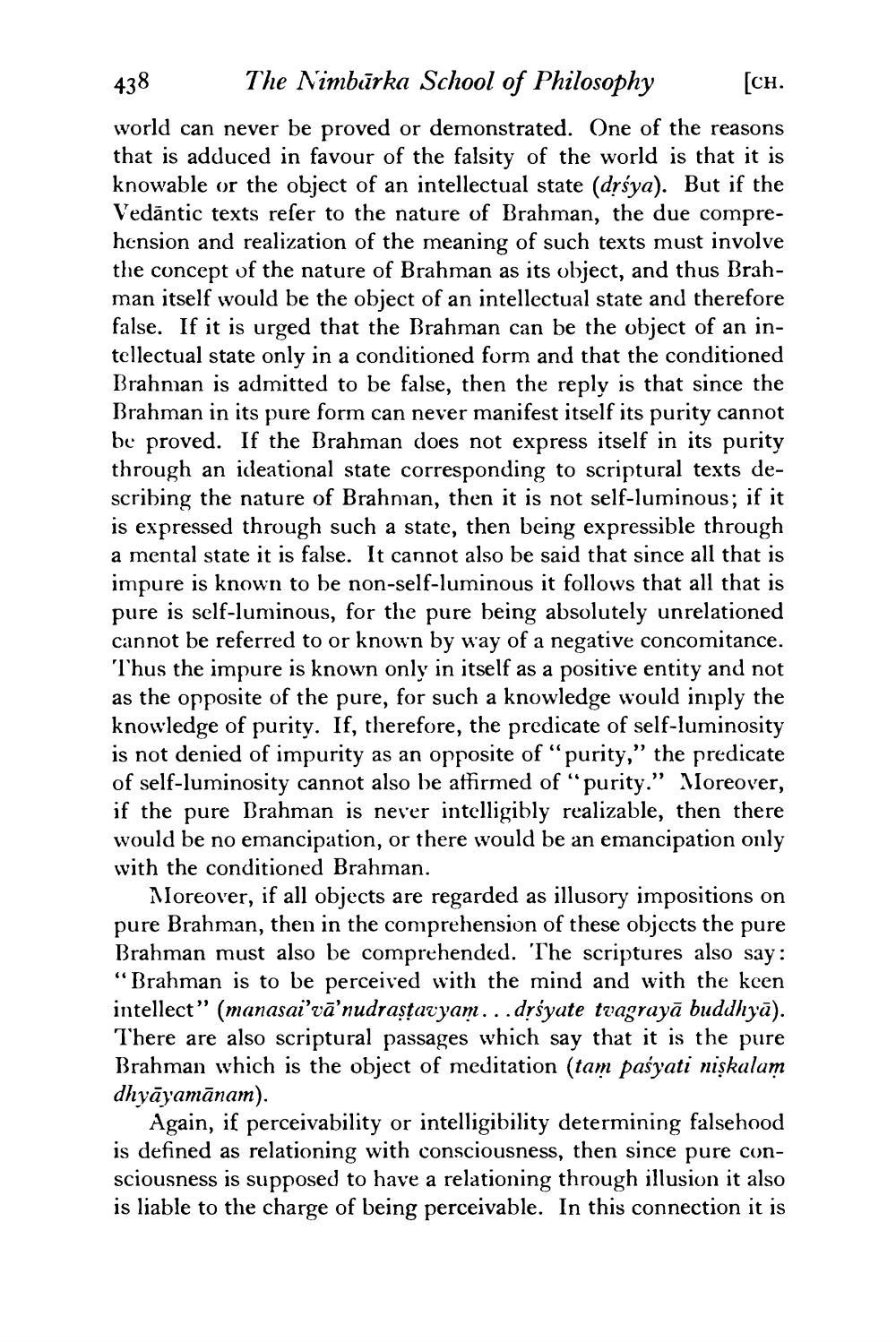________________
438 The Nimbūrka School of Philosophy [cH. world can never be proved or demonstrated. One of the reasons that is adduced in favour of the falsity of the world is that it is knowable or the object of an intellectual state (drśya). But if the Vedāntic texts refer to the nature of Brahman, the due comprehension and realization of the meaning of such texts must involve the concept of the nature of Brahman as its object, and thus Brahman itself would be the object of an intellectual state and therefore false. If it is urged that the Brahman can be the object of an intellectual state only in a conditioned form and that the conditioned Brahman is admitted to be false, then the reply is that since the Brahman in its pure form can never manifest itself its purity cannot be proved. If the Brahman does not express itself in its purity through an ideational state corresponding to scriptural texts de scribing the nature of Brahman, then it is not self-luminous; if it is expressed through such a state, then being expressible through a mental state it is false. It cannot also be said that since all that is impure is known to be non-self-luminous it follows that all that is pure is self-luminous, for the pure being absolutely unrelationed cannot be referred to or known by way of a negative concomitance. Thus the impure is known only in itself as a positive entity and not as the opposite of the pure, for such a knowledge would imply the knowledge of purity. If, therefore, the predicate of self-luminosity is not denied of impurity as an opposite of “purity,” the predicate of self-luminosity cannot also be affirmed of “purity.” Moreover, if the pure Brahman is never intelligibly realizable, then there would be no emancipation, or there would be an emancipation only with the conditioned Brahman.
Moreover, if all objects are regarded as illusory impositions on pure Brahman, then in the comprehension of these objects the pure Brahman must also be comprehended. The scriptures also say: “Brahman is to be perceived with the mind and with the keen intellect” (manasai’rā’nudrașțatyam...drsyate tvagrayā buddhyā). There are also scriptural passages which say that it is the pure Brahman which is the object of meditation (tam paśyati nişkalam dhyāyamānam).
Again, if perceivability or intelligibility determining falsehood is defined as relationing with consciousness, then since pure consciousness is supposed to have a relationing through illusion it also is liable to the charge of being perceivable. In this connection it is




